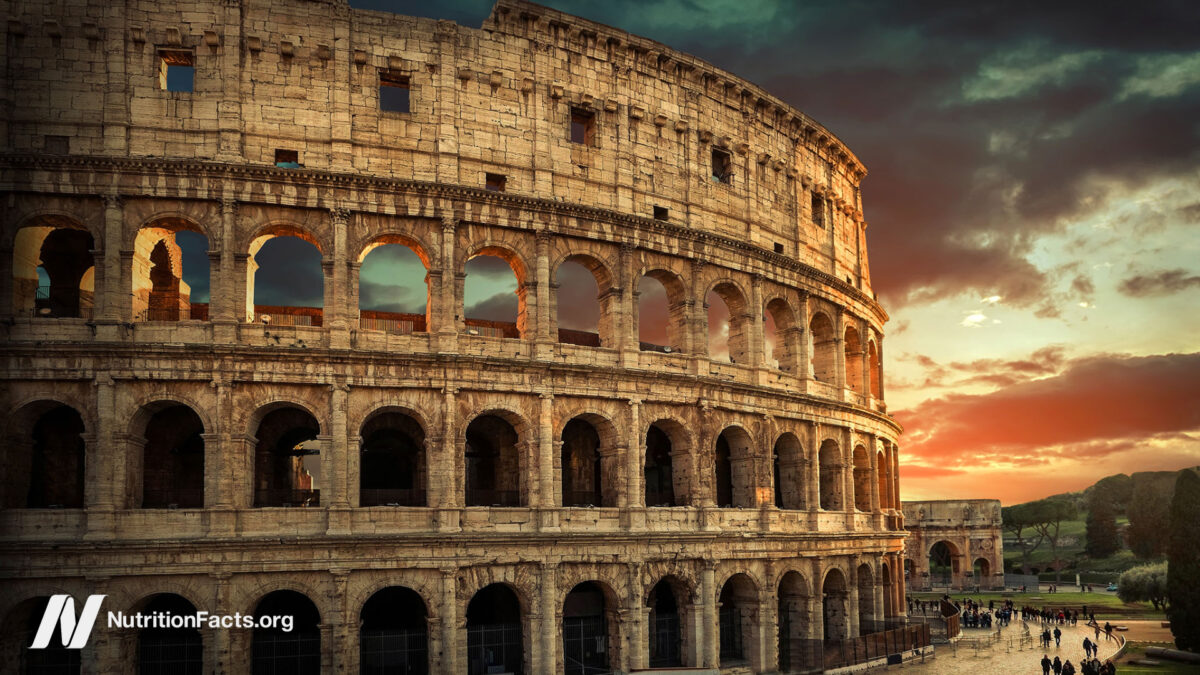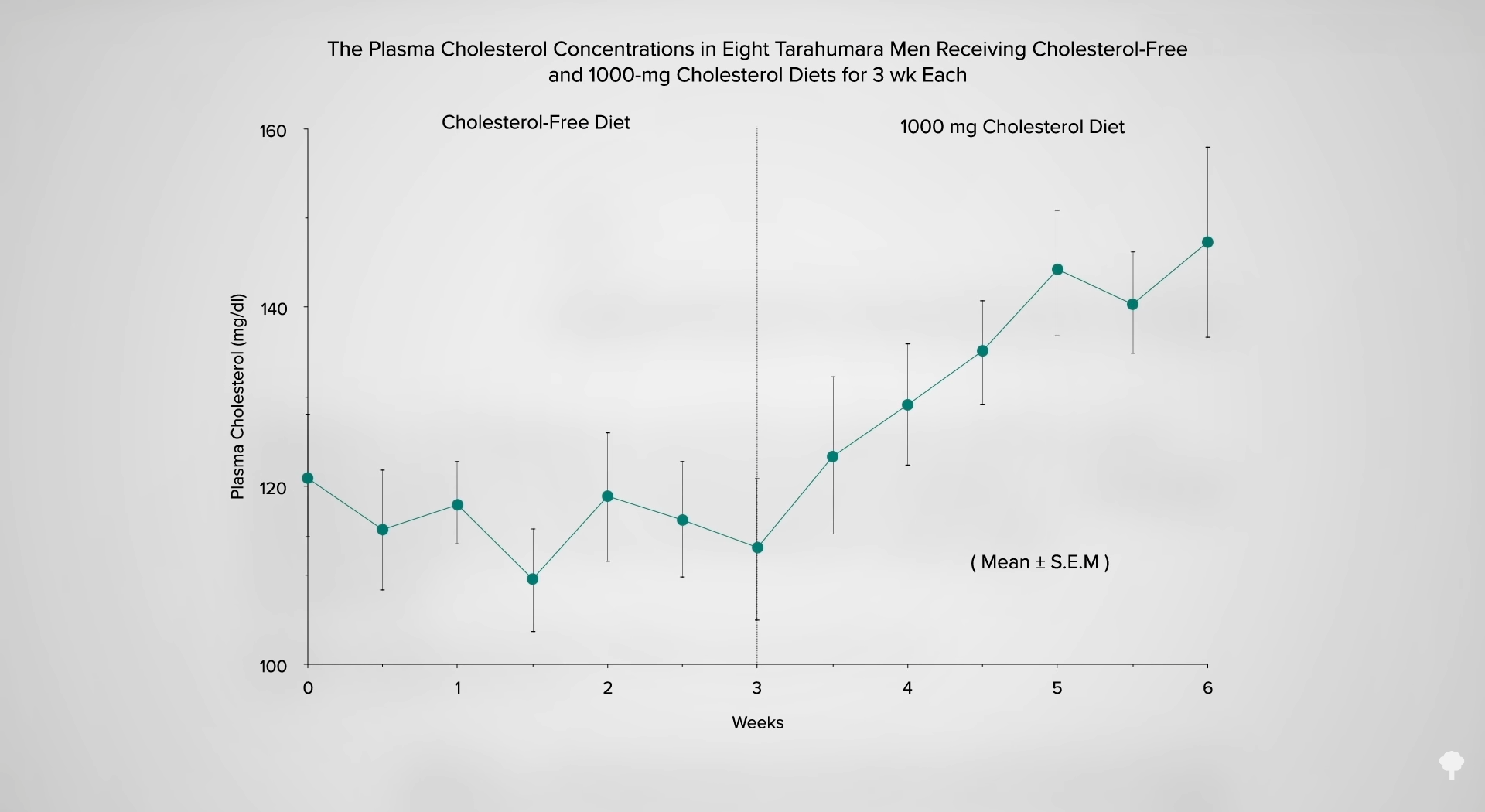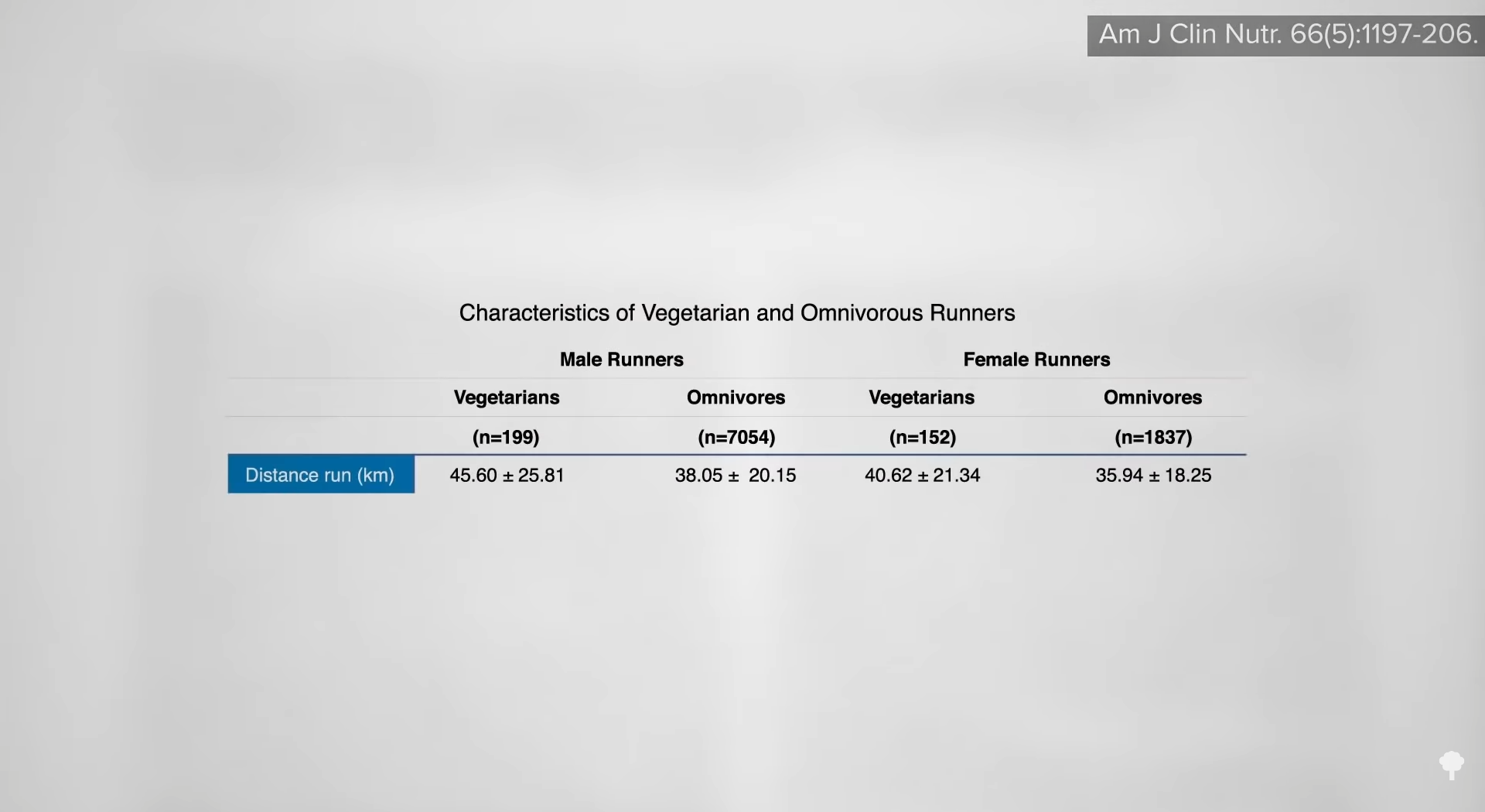What Is the Gladiator Diet and How Do Vegetarian Athletes Stack Up?
I compare the diets of the Roman gladiator “barley men” and army troopers to the modern Spartans of today. The remains of dozens of Roman […]

I compare the diets of the Roman gladiator “barley men” and army troopers to the modern Spartans of today.
The remains of dozens of Roman gladiators were recently discovered in a mass grave in ancient Ephesus (Turkey). The clue to their identities was the rather distinct types of mortal injuries the researchers found, like being speared in the head with a trident, as you can see at 0:15 in my video The Gladiator Diet: How Vegetarian Athletes Stack Up. Just by examining the skeletons, the researchers were able to reconstruct the deathblows, show just how muscular and buff the gladiators really were, and even try to reconstruct their diet “of barley and beans.” You can look at carbon isotopes and see what kinds of plants they ate. Nitrogen isotopes reflect intake of animal protein, for example, and looking at the sulphur in their bones and the amount of strontium led commentators to submit that the best athletes in ancient Rome ate largely plant-based diets.
The legionnaires, the Roman army troopers famed for their fighting abilities, also ate a similar kind of diet, suggesting the “best fighters in the ancient world were essentially vegetarian.” So, if the so-called perfect fighting machines, the great sports heroes of their day, were eating mostly grains and beans, what does that tell us about sports nutrition and the preferred diets of elite athletes? “The diet of most Greeks and Romans was basically vegetarian,” centered on grains, fruits, vegetables, and beans, so maybe the gladiators’ diets weren’t that remarkable. Ancient Greek philosopher Plato pushed plants, for instance, preferring plant foods for their health and efficiency.
The Roman gladiators were known as the “barley men.” Did they eat barley because it “gave them strength and stamina,” or just because barley was a common, “basic food” people ate at the time—not necessarily for performance, but because it was cheap?
Let’s look at the modern Spartans, the Tarahumara Indians, who run races where they kick a ball for 75 miles just for the fun of it. They run all day, all night, and all the next day for “as much as 150 miles and more” if they’re feeling in the mood. What do they get if they win? “Interestingly, a traditional prize of victory is said to be a special popularity with the women (although how much of a reward that would actually prove to be for a man who had been running for two days and a night is questionable, to say the least!).” Though, maybe their endurance extends in other arenas, as well.
“Probably not since the days of the ancient Spartans has a people achieved such a high state of physical conditioning.” So, what do they eat? They eat the same kind of 75 to 80 percent starch diet, based on beans, corn, and squash, and have the cholesterol levels to prove it, with total cholesterol levels down at 136 mg/dL, which is essentially heart attack-proof. They don’t have special genetics, either, because data show that if you feed them enough egg yolks, their cholesterol levels creep right up, as you can see at 2:52 in my video.

Modern day Olympic runners eat similarly. What are they eating in Kenya? They’re following a 99 percent vegetarian diet centered mostly on various starches. But, as in all of these cases, is their remarkable physical prowess because of their diets or in spite of them? Or, does their athleticism have nothing to do with what they’re eating? You don’t know until you put it to the test.
“In spite of the well-documented health benefits of vegetarian diets, less is known regarding the effects of these diets on athletic performance.” Researchers compared elite vegetarian and omnivore endurance athletes for aerobic fitness and strength by comparing oxygen utilization on the treadmill and quad strength with leg extensions. The vegetarians beat out their omnivore counterparts for cardiorespiratory fitness, but their strength didn’t differ. This suggests, at the very least, “that vegetarian diets do not compromise performance outcomes and may facilitate aerobic capacity in athletes.” But, this was a cross-sectional study. Is it possible the vegetarian athletes were just more fit because they trained harder? The National Runners’ Health Study looked at thousands of runners, and, as you can see at 4:06 in my video, vegetarian runners were recorded running significantly more on a weekly basis. Maybe that explains their superior fitness, though perhaps their superior fitness explains their greater distances.

Other cross-sectional studies have found no differences in physical fitness between vegetarian and non-vegetarian athletes, while another one found even worse performance among vegetarian athletes, but there could have been socioeconomic or other confounding factors. That’s why we need interventional studies to put different diets to the test and then compare physical performance.

 Troov
Troov 
































